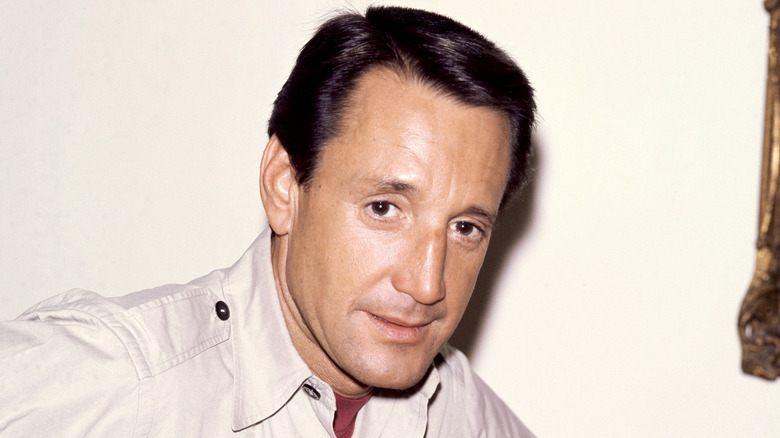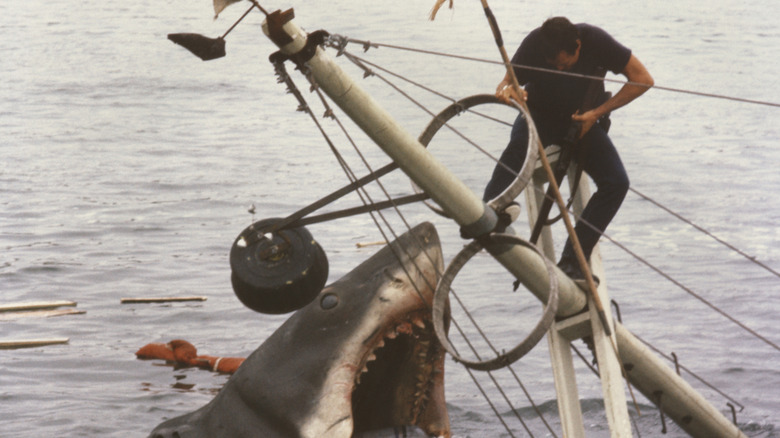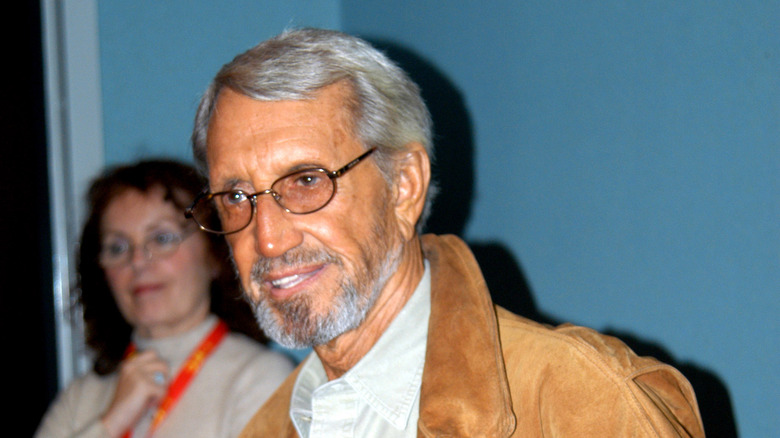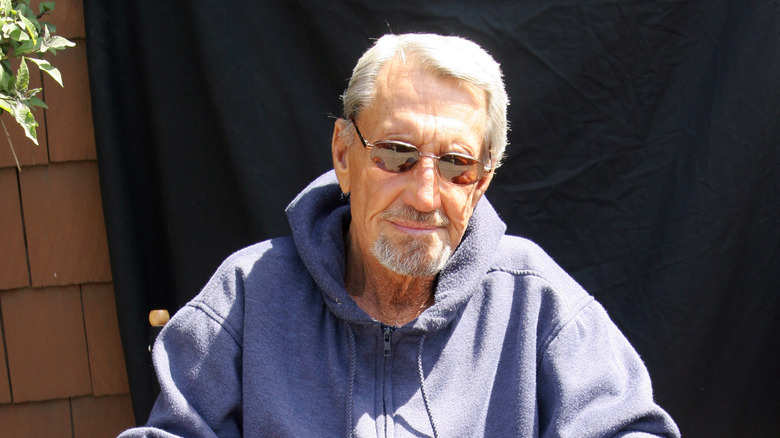The Tragic 2008 Death Of Roy Scheider Explained
In Roy Scheider's more than 30-year-long acting career he battled a giant shark in "Jaws," took on international drug smugglers in "The French Connection," and fought his own demons in "All That Jazz." But in 2005, he was fighting for his life. And not in front of the camera. Scheider was at Memorial Sloan Kettering in Manhattan undergoing a bone marrow transplant for multiple myeloma, a cancer of the white blood cells. "It went well," he told the New York Daily News that June. "They harvested my stem cells. I was my own donor."
Unfortunately, the treatment didn't save his life. On February 10, 2008, he died while at the University of Arkansas for Medical Sciences hospital in Little Rock, where he had been undergoing treatment at the hospital's Myeloma Institute for Research and Treatment for two years. His wife Brenda Siemer told The New York Times the cause of death was "complications from a staph infection." The Oscar-nominated actor was 75.
From sickly child to Hollywood hero
Roy Scheider was born on November 10, 1932, in Orange, New Jersey. Doctors diagnosed him with rheumatic fever at age 6, a disease that plagued him until his teenage years and left him overweight from lack of exercise. "When I was a kid, the treatment was bedrest, all the joints wrapped in cotton, and you had to stay like that until your temperature went down," he later recalled (via "Roy Scheider: A Film Biography"). He later took up boxing and began acting in theater production in college. "Well there always was a little bit of the clown, a little bit of the show-off, a little bit of the wise guy, a little bit of the rebel," Scheider said of his youth in a 1979 interview (via YouTube). After serving in the U.S. Air Force, his film career began with a role in a low-budget 1964 horror movie.
Scheider would soon become one of the actors who helped define the New Hollywood Movement of the 1970s, along with Robert DeNiro, Jack Nicholson, and Gene Hackman, with whom he starred in "The French Connection." Scheider's best-known role was as a police chief in Steven Spielberg's 1975 blockbuster "Jaws." In the film, Scheider improvised his most famous line — "You're going to need a bigger boat" — just one of the weird things that happened on the set of "Jaws."
The final years
Roy Scheider moved with his wife Brenda Siemer and their two children to Sagaponack, Long Island in the 1990s and continued acting on both the stage and screen. He became active in the community, helping to found a school. The esteemed actor also got involved in politics and participated in the demonstrations against the war in Iraq in March 2003 in New York City. Then in December 2004, Scheider's doctor diagnosed him with multiple myeloma, multiple myeloma is a cancer of the white blood cells that starts in the bone marrow and can spread throughout the body.
Scheider was in his 70s, and cancer is the second most likely way to die in America in the actor's age group just behind heart disease. In the 2005 interview with the New York Daily News, Scheider pointed out the irony of his role in Francis Ford Coppola's film "The Rainmaker," in which he played a villainous insurance executive who refuses to pay for someone's lifesaving bone marrow transplant.
Life after death
Later in 2005, Roy Scheider appeared on "The Today Show" and discussed how lucky he felt to still be alive. "Every single day," he said (via the Los Angeles Times), "it's a miracle." While weakened by the cancer, Scheider died from a staph infection. These types of infections are caused by staphylococcus bacteria and can turn deadly when they invade the bloodstream and organs.
"He was a wonderful guy. He was what I call 'a knockaround actor,"' Richard Dreyfuss, his co-star in "Jaws," told the Associated Press at the time of Scheider's death. "A 'knockaround actor' to me is a compliment that means a professional that lives the life of a professional actor and doesn't yell and scream at the fates and does his job and does it as well as he can." In 2022, 14 years after Scheider's death, his final film "Beautiful Blue Eyes" came out. The filmmakers used AI technology to finish a pivotal scene they had been unable to shoot before the actor's death. "He put so much effort into this film, and I am pleased that we can finally honor him by showing it properly in all of its glory," director Joshua Newton told the New York Post in September 2022.



